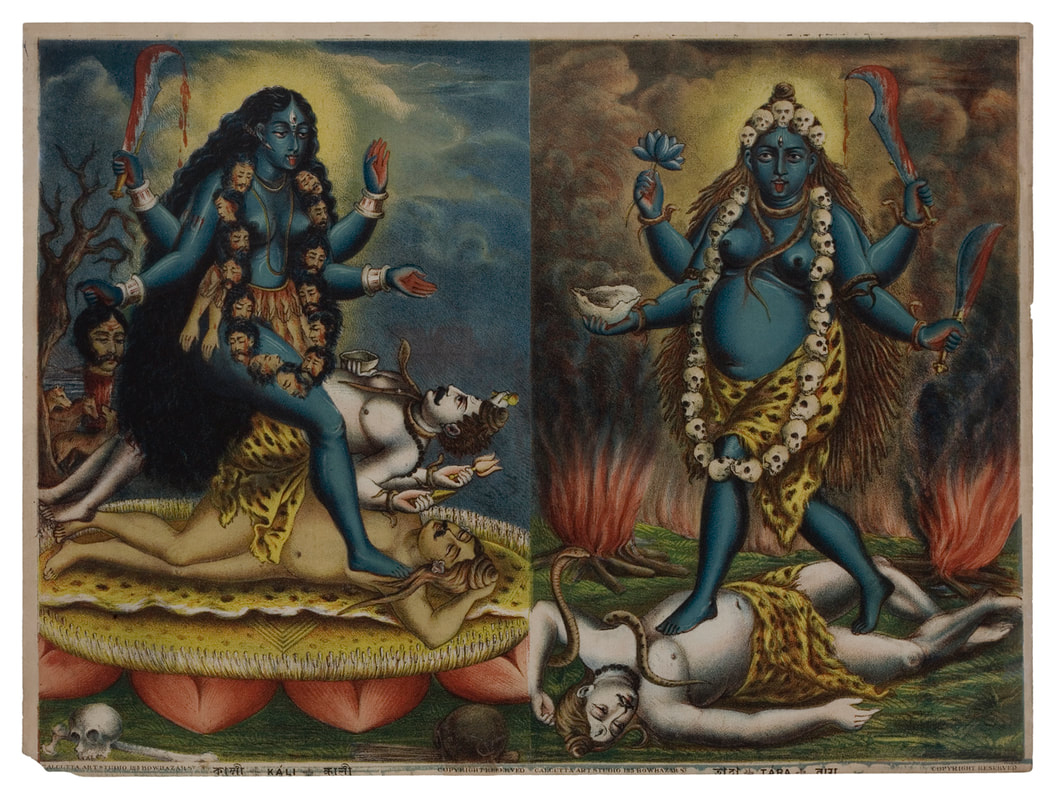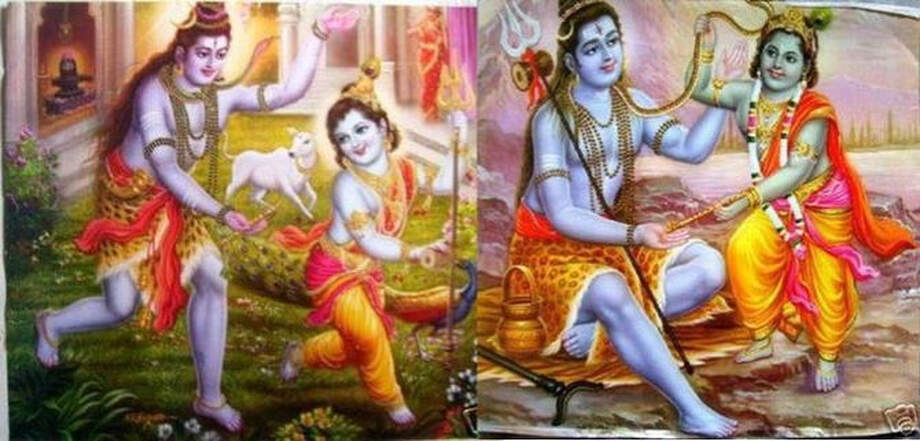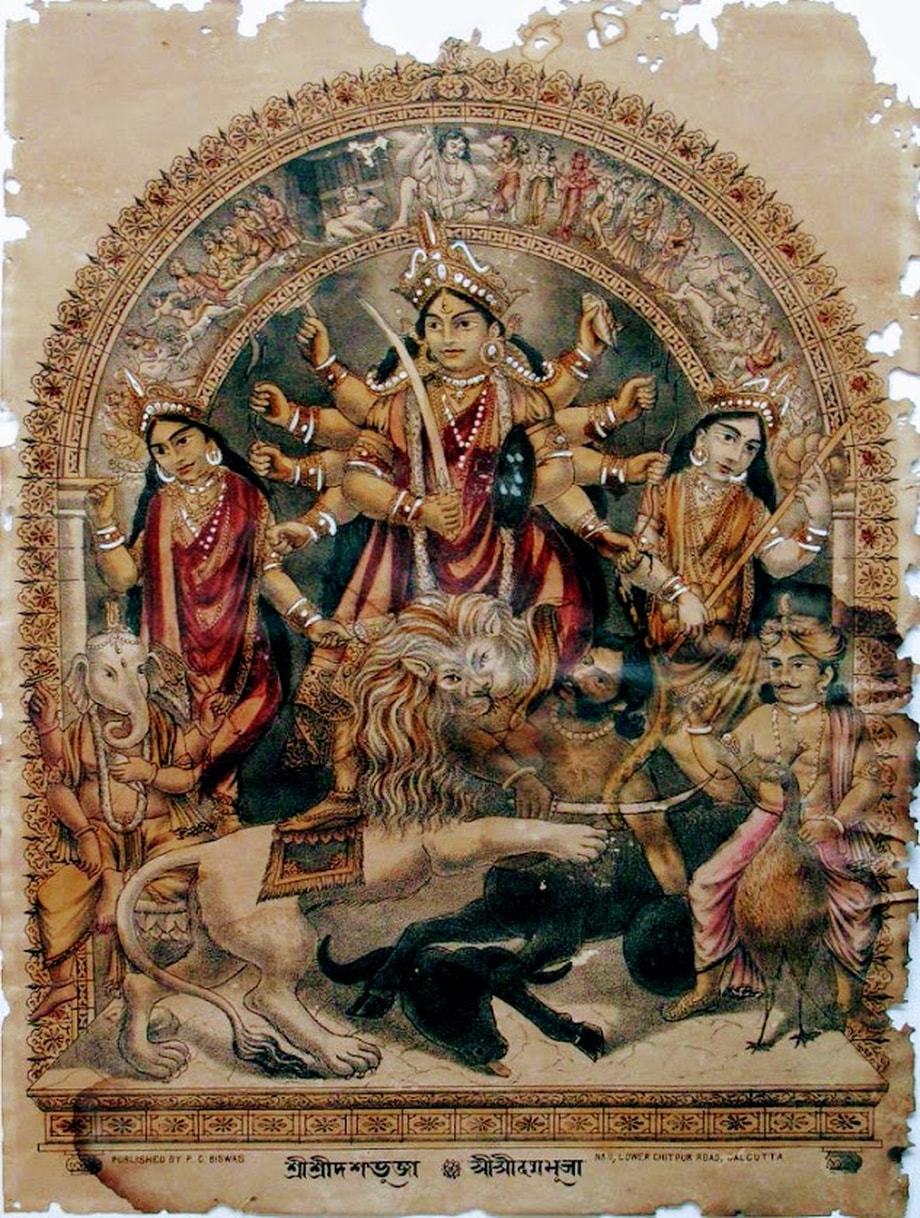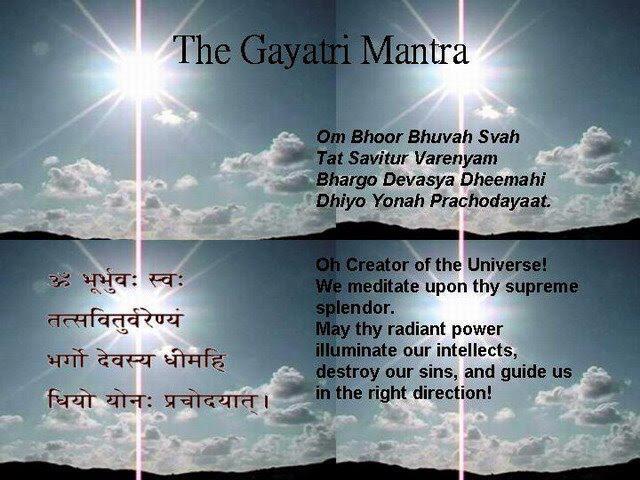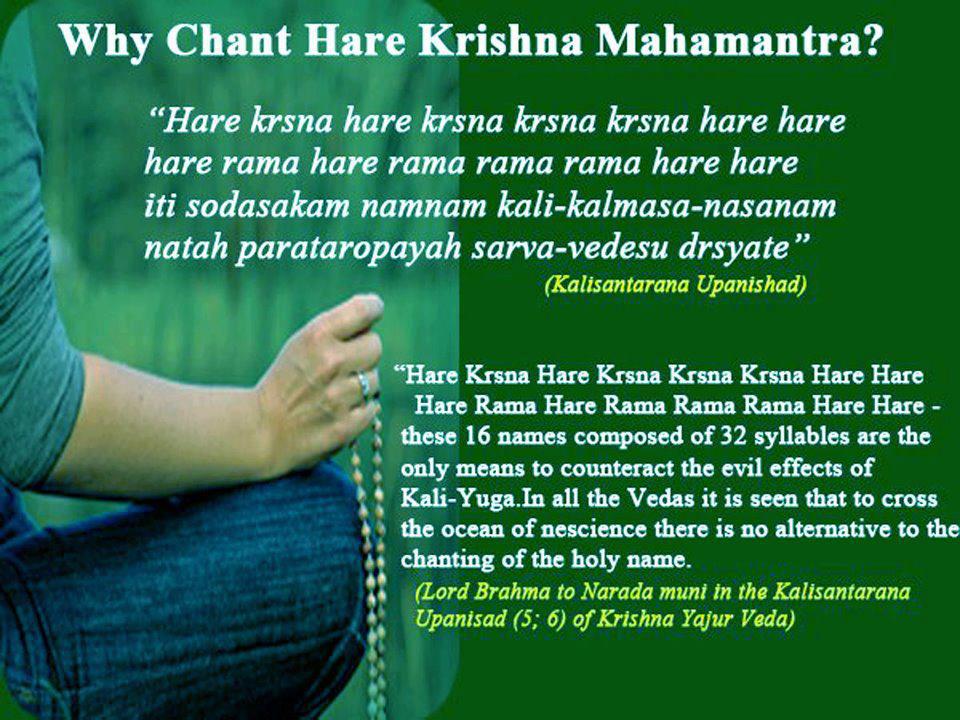- The Below chant is NOT by the Dalia Lama, it is by Hein Baart.
- This is a very powerful Mantra and Hein Baarts of the Netherlands is very devotional.
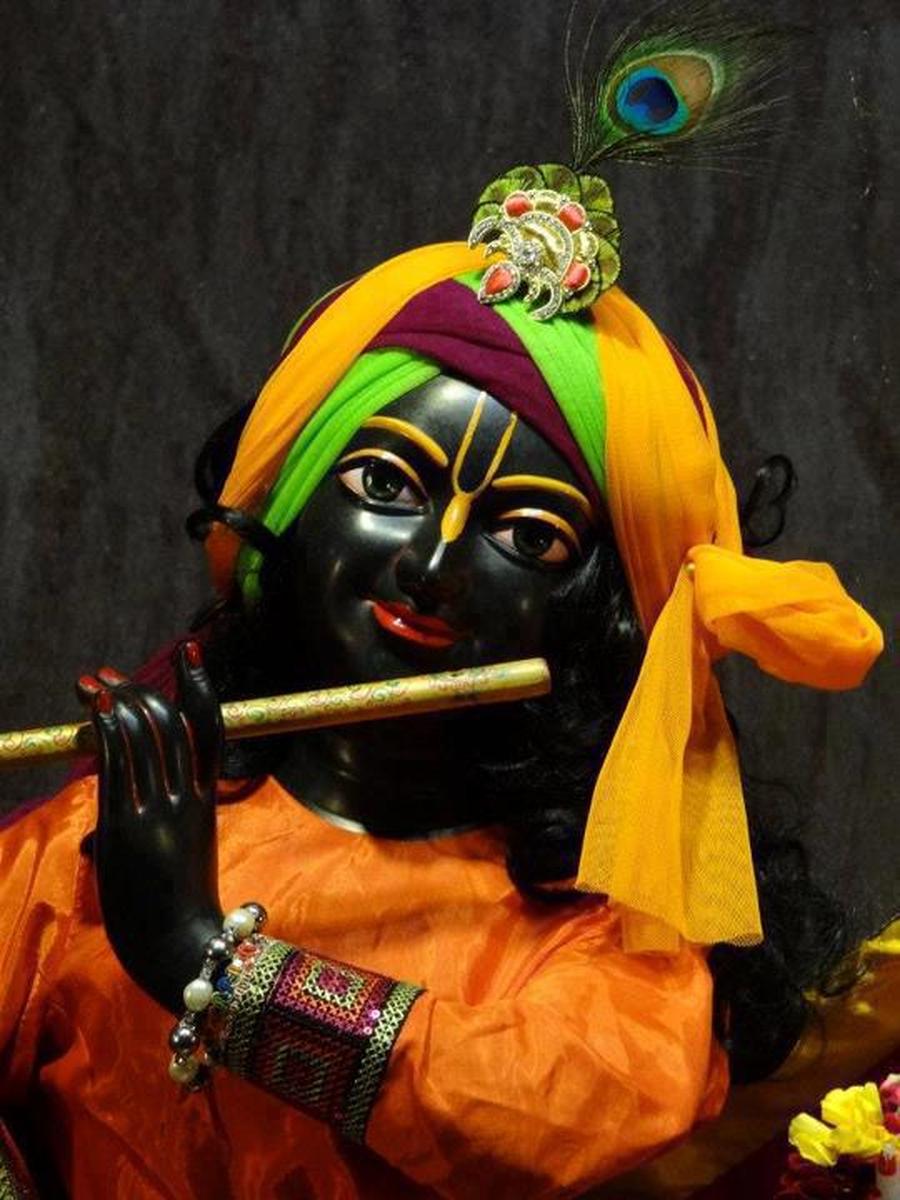
BHAJA GOVINDAM OF ADI SHANKARA
Verse 1:
BHAJA GOVINDAM, BHAJA GOVINDAM
GOVINDAM BHAJA MUDHAMATE
SAMPRAAPTE SANNIHITE KALE
NA HI NA HI RAKSHATI DUKRINKARANE
Seek Govinda! Seek Govinda! Seek Govinda! Oh ignoramus, at the time of death the rules of grammer, which you are trying to cram and master, will not be able to rescue you at all.
(Grammer rules mean all secular knowledge and earthly acquistitions. Mudhamati means a materialist, wholely worldly-minded, who does not believe in God or the spiritual entity that is in man)
Verse 2:
MOODHA JAHEEHI DHANAAGAMATRISHNAAM
KURU SADBUDHIM MANASI VITRISHNAAM
YALLABHASE NIJAKARMOPAATHAM
VITHAM TENA VINODAYA CHITHAM
(refrain from Verse 1 to be sung after every verse...BHAJA GOVINDAM, BHAJA GOVINDAM..........)
Oh, Fool! give up your insatiable desire for earthly possessions; be sensible and develop serenity and contentment. Be satisfied and happy with whatever you may earn by the sweat of your brow and whatever has destiny marked for your lot.
Verse 3:
NAAREE STHANABHARA NABHEEDESAM
DHRISHTWA MAA GAA MOHAVESAM
YETAN MAAMSAVASAADI VIKAARAM
MANASI VICHINTHAYA VAARAM VAARAM
Enticed by the physical glamour of a woman, do not lose your senses; the body is nothing but a conglomeration of flesh, do not forget this any time.
Verse 4:
NALINEEDALAGATHA JALAMATITHARALAM
TADWAJJEEVITAMATHISHAYA CHAPALAM
VIDDHI VYADHYABHIMAANAGRASTAM
LOKAM SHOKAHATAM CHA SAMASTHAM
The water droplet on the lotus leaf is tremulous and unsteady. So too is life which is as uncertain. Know the body to be in the claws of disease, which may swallow it at any moment. Life is ultimately nothing but worry, misery and grief.
Verse 5:
YAAVADVITTOPAARJANA SAKTHAH
TAAVANNIJAPARIVAARO RAKTHAH
PASCHAAJJEEVATI JARJARADEHE
VAARTHAM KOPI NA PRICHCHATHI GEHE
As long as you are fit to make an earning, so long will your kith and kin be solicitous about you, but no sooner your limbs become infirm and your earnings cease, none will care for you, not even your own home-folk.
Verse 6:
YAAVATPAVANO NIVASATI DEHE
TAAVATPRICHCHATI KUSHALAM GEHE
GATAVATI VAAYO DEHAAPAAYE
BHAARYA BIBHYATI TASMINKAAYE
As long as there is life in your body, your people may have concern for you, but once the life-breath ebbs out of your body, even your own wife will run away from you.
Verse 7:
BAALASTAAVAT KREEDAA SAKTHAH
THARUNASTAAVAT THARUNEESAKTHAH
VRIDDHASTAAVAT CHINTHAASAKTHAH
PARASE BRAHMANI KOPI NA SAKTHA
Childhood skips off on sport and play. Youth flies off in pursuits of love-making. As one grows older he is drowned in worry about the security and future of his wife and children. One's whole life gets spent in some kind of worry or other. And at no stage does man find time to lift his thoughts to God.
Verse 8:
KAA TE KAANTAA KASTE PUTHRAH
SAMSAROYAMATEEVA VICHITRAH
KASYA TWAM KAH KUTHA AAYAATAH
TATWAM CHINTHAYA TADIHA BHARATAH
Who indeed is your beloved and who indeed is your son? Strange indeed are these family bonds; who belongs to you and to whom you belong? Whence did you come, Oh brother! Reflect on the truth of it all.
Verse 9:
SATSANGATWE NISSANGATWAM
NISSANGATWE NIRMOHATWAM
NIRMOHATWE NISCHALATATWAM
NISCHALATATWE JEEVANMUKTHIH
The company of the good weans one away from false attachments; when attachment is lost, delusion ends; when delusion ends, the mind becomes unwavering and steady. An unwavering and steady mind is merited for Jeevan Mukti (liberation even in this life).
Verse 10:
VAYASI GATE KAH KAMAVIKARAH
SHUSHKE NEERE, KAH KAASAARAH
KSHEENE VITHE KAH PARIVARO
GYNATE TATWE KAH SAMASARAH
When youth is gone, where is lust and its play? Where is the lake when its waters have dried up? Where are the kinsfolk when riches are gone ? When Truth is realised, where is the snare of Samsara?
Verse 11:
MAA KURU DHANAJANAYOUVANAGARVAM
HARATI NIMESHAATKAALAH SARWAM
MAAYAAMAYAMIDAMAKHILAM HITHWA
BRAHMAPADAM TWAM PRAVISHA VIDITWA
The pleasures and riches of worldly life are deceptive appearances. Understanding that they are all but a passing-show, be detached and dispassionate, cultivate renunciation and seek Brahman.
Verse 12:
DINAYAAMINYOU SAAYAM PRAATAH
SHISHIRAVASANTOW PUNARAAYAATAH
KAALAH KREEDATI GACHCHATYAAYUH
TADAPI NA MUNCHATHYAASAAVAAYUH
Day and night, dawn and dusk, winter and spring, all these are flitting across the stage of the world. While time thus is frolicking and befooling us, our life span is also running out; yet we do not, even a little, give up the clinging to our desires, nor do we let the desires loosen their grip on us.
Verse 13:
KAA TE KAANTAA DHANAGATACHINTAA
VAATULA KIM TAVA NAASTI NIYANTAA
TRIJAGATI SAJJANASANGATIREKAA
BHAVATI BHAVAARNAVATARANE NOUKAA
Crazy man ! Why do you worry so much about your wife and property? Why don't you seek out the Truth? Know that in these three worlds it is only the association with the good and holy that can help you in crossing safely the ocean of life.
Verse 14:
JATILO MUNDI LUNCHITAKESHAH
KAASHAAYAAMBARA BAHUKRITAVESHAH
PASYANNAPI CHA NA PASYATI MOODHO
HIUDARANIMITAM BAHUKRITAVESHAH
The ascetic with matted locks, the man with the shaven head or one with hair pulled out, or the man parading in the ochre robes -- they all have eyes but yet do not see. All these are but deceptions for cheating the world, for filling their bellies. (Renunciation does not lie in external appearance, but in inward thought, attitude and feeling).
Verse 15:
ANGAM GALITAM PALITAM MUNDAM
DASANAVIHEENAM JAATAM TUNDAM
VRIDHDHO YAATI GRIHEETWA DANDAM
TADAPI NA MUNCHATYAASHAAPINDAM
The body has become decrepit, the hair on the head has turned completely gray; the mouth has become totally toothless; the back is bent down and the old man cannot take even a step witout the aid of his stick; yet he does not loosen even a bit, his hold on the bundle of desires.
Verse 16: ~~~~~~~
AGRE VAHNIH PRISHTE BHAANUH
RAATHROW CHUBUKASAMARPITAJAANUH
KARATALABHIKASHAS TARUTALAVAASAH
TADAPI NA MUNCHATYAASHAAPAASAH
Homeless he is; his back is bent down with age. His body has lost its heat and he has to warm himself before a fire or in the sun. Tree is his only shelter; he lives by begging and by the crumbs thrown into his palms by others; in the night he sleeps by holding his chin on his knee (because the back is bent and he cannot stretch himself and lie down). Yet, he does not let and allow the grip of desires on him loosen even a bit.
Verse 17: ~~~~~~~
KURUTE GANGAASAAGARAGAMANAM
VRATAPARIPAALANAMATHAVAA DAANAM
JNANAVIHEENAH SARVAMATENA
MUKTIM NA BHAJATI JANMASATENA
One may have bathed in the holy Ganges or even in the Ganga Sagar; he may have performed many charities and observed many vows; yet unless one has glimpsed the Truth (God), he will not gain release even after a hundred lives.
Verse 18: ~~~~~~~
SURAMANDIRA TARUMOOLA NIVAASAH
SAIYAA BHOOTALAMAJINAM VAASAH
SARVAPARIGRAHA BHOGATYAAGAH
KASYA SUKHAM NA KAROTI VIRAAGAH
Who can disturb the peace and happiness of a man if he has the true spirit of renunciation and has controlled his desires, even if he be the poorest, sleeping only in the temple halls and choultries or under trees or on the bare ground and just with a deer skin to cover.
Verse 19: ~~~~~~~
YOGARATO VAA BHOGARATO VAA
SANGARATO VAA SANGAVIHEENAH
YASYA BRAHMANI RAMATE CHITHAM
NANDATI NANDATI NANDATYEVA
Whether one is immersed in yoga or is revelling in bhoga (i.e, outward enjoyment), whether he is enjoying himself in social company or has retired into solitude, true happiness certainly cannot be his; but who alone is revelling inwardly in Brahman, (wherever he be), he alone will be truly happy and will verily enjoy.
Verse 20: ~~~~~~~
BHAGAVADGEETA KINCHIDADHEETAA
GANGAAJALALAVAKANIKAA PEETAA
SAKRIDAPI YENA MURARISAMARCHAA
KRIYATE TASYA YAMENA NA CHARCHA
Even a little study and understanding of the Bhagawad Gita, or sipping of even a tiny drop of the waters of the holy Ganges or even a little worship of Murari -- these will surely save one from confrontation with death!
Verse 21: ~~~~~~~
PUNARAPI JANANAM PUNARAPI MARANAM
PUNARAPI JANANEE JATARE SAYANAM
IHA SAMSAARE BAHUDUSTAARE
KRIPAYAA(A)PAARE PAAHI MURARE
Undergoing the pangs of birth again and again, passing through the throes of death again and again, lying in the mother's womb over and over again, this process of samsara is hard to cross over. Save me from it, Oh merciful Lord !
Verse 22: ~~~~~~~
RATHYAACHARPATA VIRACHITAKANTHAH
PUNYAAPUNYA VIVARJITAPANTHAH
YOGEE YOGANIYOJITACHITHO
RAMATE BAALONMATTAVADEVA
Clad in stray rags, treading the path beyond good and evil, caring for neither earning merit by taking to good deeds nor stooping to do any evil, and lost in meditation the yogi revels in the Supreme always, lost to all outward norms and decorum -- his behaviour may look prankish like that of a child or may be even queer like that of a lunatic.
Verse 23: ~~~~~~~
KASTWAM KOHAM KUTA AAYAATAH
KAA ME JANANEE KO ME TAATAH
ITI PARIBHAVAYA SARVAMASAARAM
VISWAM TYAKTWAA SWAPNAVICHAARAM
Who are you ? Who am I ? From Where did I come? Who is my mother, who is my father? -- enquire thus and you will then realise that the entire world of experience, all the worries and problems are but a dream, a mere hallucination, born of imagination and delusion. With such a realisation, you will be freed from the delusions of the world.
Verse 24: ~~~~~~~
TWAYI MAYI CHAANYATRAIKO VISHNUH
VYARTHAM KUPYASI MAYYASAHISHNUH
BHAVA SAMACHITTAH SARVATRA TWAM
VANCHHASYASHIRAADYADI VISHNUTWA
In you, in me and everywhere, there is but the one Vishnu. Mistakenly viewing me with a sense of difference, you are ill-disposed towards me. Try to see in all beings only the Vishnu who is your own self. Give up your false and egoistic sense of separateness from other beings. Cultivate a sense of kinship, unity and oneness with all.
Verse 25: ~~~~~~~
SATROU MITRE PUTRE BANDHOU
MAA KURU YATNAM VIGRAHASANDHOU
SARVASMINNAPI PASYAATMAANAM
SARVATROTSRIJA BHEDAAJNYANA
Do not look at anybody in terms of friend or foe, brother or cousin; do not fritter away your mental energies in thoughts of friendship or enemity. Seeking the Self everywhere, be amiable and equal-minded towards all, treating all alike.
Verse 26: ~~~~~~~
KAAMAM KRODHAM LOBHAM MOHAM
TYAKTWAA TMAANAM PASHYATI SOHAM
AATMAJNANA VIHEENAA MUDAAH
TE PASYANTE NARAKANIGOODAAH
Free yourself from lust, anger, greed and delusion. Contemplate on 'who you are'. Enquire within yourself, who am I? The fools who fail to apprehend the Self are caught in hell-fire even here and now itself and suffer torture.
Verse 27: ~~~~~~~
GEYAM GEETAANAAMASAHASRAM
DHYEYAM SHREEPATIROOPAMAJASRAM
NEYAM SAJJANASANGE CHITTAM
DEYAM DEENAJANAAYA CHA VITTAM
Recite the Gita; chant the thousand Names of the lord (Vishnu Sahasranama), meditate ceaselessly on the Consort and Lord of Lakshmi; lead the mind towards association with the good. Give away your wealth in charity to those in need and who are poor.
Verse 28: ~~~~~~~
SUKHATAH KRIYATE RAAMAABHOGAH
PASCHADDHANTA SHAREERE ROGAH
YADYAPI LOKE MARANAM SARANAM
TADAPI NA MUNJCHATI PAAPAACHARANAM
As readily as one takes to indulging in carnal pleasures, with the same readiness, alas, he is taken over by disease too. Even seeing death as the inevitable and only end of all, man does not refrain from sinful ways.
Verse 29: ~~~~~~~
ARTHAMANARTHAM BHAAVAYA NITHYAM
NAASTI TATAH SUKHALESAH SATHYAM
PUTHRAADAPI DHANABHAAJAAM BHEETIH
SARVATRAISHA VIHITA REETIH
It is wealth only that causes all harm and brings about one's ruin. Bear this truth in mind always. Know that the pursuit of wealth does not lead one to happiness at all. The rich fear and are even afraid of their own sons. This is the outcome of riches anywhere and ever.
Verse 30: ~~~~~~~
PRAANAAYAAMAM PRATYAAHAARAM
NITYAANITYA VIVEKAVICHAARAM
JAAPYASAMETA SAMAADHIVIDHAANAM
KURVAVADHAANAM MAHADAVADHAANAM
Regulated breathing and sense control, discrimination between the Enduring and the fleeting, the Eternal and the transcient, Japa and meditation, and submerging of the bodily and mental consciousness in the Consciousness of the Spirit, merging oneself into the total Inner Silence -- one must practice these with unrelenting fervour.
Verse 31: ~~~~~~~
GURUCHARANAAMBUJA NIRBHARABHAKTHAH
SAMSAARAADACHIRAADHAVA MUKTHAH
SENDRIYA MAANASA NIYAMAADEVAM
DRAKSHYASI NIJAHRIDAYASTHAM DEVAM
Surrender yourself to the Lotus Feet of the Guru; with your senses and mind disciplined, and freed from the shackles of Samsara you will behold the Lord who is seated in your heart.
********
<>
Govindam Adi-Purusam?
"Seek Govinda, Seek God, Bhaja Govindam", in this refrain comprising of two words, Sri Sankara Bhagavatpada, has summed up in a nutshell as it were, the entire preaching of Vedanta and religion for the redemption of mankind. It gives us the key for entering into the realm of Bliss, the abode of Govinda and for terminating the misery of life we are in at present.
Verse 1:
BHAJA GOVINDAM, BHAJA GOVINDAM
GOVINDAM BHAJA MUDHAMATE
SAMPRAAPTE SANNIHITE KALE
NA HI NA HI RAKSHATI DUKRINKARANE
Seek Govinda! Seek Govinda! Seek Govinda! Oh ignoramus, at the time of death the rules of grammer, which you are trying to cram and master, will not be able to rescue you at all.
(Grammer rules mean all secular knowledge and earthly acquistitions. Mudhamati means a materialist, wholely worldly-minded, who does not believe in God or the spiritual entity that is in man)
Verse 2:
MOODHA JAHEEHI DHANAAGAMATRISHNAAM
KURU SADBUDHIM MANASI VITRISHNAAM
YALLABHASE NIJAKARMOPAATHAM
VITHAM TENA VINODAYA CHITHAM
(refrain from Verse 1 to be sung after every verse...BHAJA GOVINDAM, BHAJA GOVINDAM..........)
Oh, Fool! give up your insatiable desire for earthly possessions; be sensible and develop serenity and contentment. Be satisfied and happy with whatever you may earn by the sweat of your brow and whatever has destiny marked for your lot.
Verse 3:
NAAREE STHANABHARA NABHEEDESAM
DHRISHTWA MAA GAA MOHAVESAM
YETAN MAAMSAVASAADI VIKAARAM
MANASI VICHINTHAYA VAARAM VAARAM
Enticed by the physical glamour of a woman, do not lose your senses; the body is nothing but a conglomeration of flesh, do not forget this any time.
Verse 4:
NALINEEDALAGATHA JALAMATITHARALAM
TADWAJJEEVITAMATHISHAYA CHAPALAM
VIDDHI VYADHYABHIMAANAGRASTAM
LOKAM SHOKAHATAM CHA SAMASTHAM
The water droplet on the lotus leaf is tremulous and unsteady. So too is life which is as uncertain. Know the body to be in the claws of disease, which may swallow it at any moment. Life is ultimately nothing but worry, misery and grief.
Verse 5:
YAAVADVITTOPAARJANA SAKTHAH
TAAVANNIJAPARIVAARO RAKTHAH
PASCHAAJJEEVATI JARJARADEHE
VAARTHAM KOPI NA PRICHCHATHI GEHE
As long as you are fit to make an earning, so long will your kith and kin be solicitous about you, but no sooner your limbs become infirm and your earnings cease, none will care for you, not even your own home-folk.
Verse 6:
YAAVATPAVANO NIVASATI DEHE
TAAVATPRICHCHATI KUSHALAM GEHE
GATAVATI VAAYO DEHAAPAAYE
BHAARYA BIBHYATI TASMINKAAYE
As long as there is life in your body, your people may have concern for you, but once the life-breath ebbs out of your body, even your own wife will run away from you.
Verse 7:
BAALASTAAVAT KREEDAA SAKTHAH
THARUNASTAAVAT THARUNEESAKTHAH
VRIDDHASTAAVAT CHINTHAASAKTHAH
PARASE BRAHMANI KOPI NA SAKTHA
Childhood skips off on sport and play. Youth flies off in pursuits of love-making. As one grows older he is drowned in worry about the security and future of his wife and children. One's whole life gets spent in some kind of worry or other. And at no stage does man find time to lift his thoughts to God.
Verse 8:
KAA TE KAANTAA KASTE PUTHRAH
SAMSAROYAMATEEVA VICHITRAH
KASYA TWAM KAH KUTHA AAYAATAH
TATWAM CHINTHAYA TADIHA BHARATAH
Who indeed is your beloved and who indeed is your son? Strange indeed are these family bonds; who belongs to you and to whom you belong? Whence did you come, Oh brother! Reflect on the truth of it all.
Verse 9:
SATSANGATWE NISSANGATWAM
NISSANGATWE NIRMOHATWAM
NIRMOHATWE NISCHALATATWAM
NISCHALATATWE JEEVANMUKTHIH
The company of the good weans one away from false attachments; when attachment is lost, delusion ends; when delusion ends, the mind becomes unwavering and steady. An unwavering and steady mind is merited for Jeevan Mukti (liberation even in this life).
Verse 10:
VAYASI GATE KAH KAMAVIKARAH
SHUSHKE NEERE, KAH KAASAARAH
KSHEENE VITHE KAH PARIVARO
GYNATE TATWE KAH SAMASARAH
When youth is gone, where is lust and its play? Where is the lake when its waters have dried up? Where are the kinsfolk when riches are gone ? When Truth is realised, where is the snare of Samsara?
Verse 11:
MAA KURU DHANAJANAYOUVANAGARVAM
HARATI NIMESHAATKAALAH SARWAM
MAAYAAMAYAMIDAMAKHILAM HITHWA
BRAHMAPADAM TWAM PRAVISHA VIDITWA
The pleasures and riches of worldly life are deceptive appearances. Understanding that they are all but a passing-show, be detached and dispassionate, cultivate renunciation and seek Brahman.
Verse 12:
DINAYAAMINYOU SAAYAM PRAATAH
SHISHIRAVASANTOW PUNARAAYAATAH
KAALAH KREEDATI GACHCHATYAAYUH
TADAPI NA MUNCHATHYAASAAVAAYUH
Day and night, dawn and dusk, winter and spring, all these are flitting across the stage of the world. While time thus is frolicking and befooling us, our life span is also running out; yet we do not, even a little, give up the clinging to our desires, nor do we let the desires loosen their grip on us.
Verse 13:
KAA TE KAANTAA DHANAGATACHINTAA
VAATULA KIM TAVA NAASTI NIYANTAA
TRIJAGATI SAJJANASANGATIREKAA
BHAVATI BHAVAARNAVATARANE NOUKAA
Crazy man ! Why do you worry so much about your wife and property? Why don't you seek out the Truth? Know that in these three worlds it is only the association with the good and holy that can help you in crossing safely the ocean of life.
Verse 14:
JATILO MUNDI LUNCHITAKESHAH
KAASHAAYAAMBARA BAHUKRITAVESHAH
PASYANNAPI CHA NA PASYATI MOODHO
HIUDARANIMITAM BAHUKRITAVESHAH
The ascetic with matted locks, the man with the shaven head or one with hair pulled out, or the man parading in the ochre robes -- they all have eyes but yet do not see. All these are but deceptions for cheating the world, for filling their bellies. (Renunciation does not lie in external appearance, but in inward thought, attitude and feeling).
Verse 15:
ANGAM GALITAM PALITAM MUNDAM
DASANAVIHEENAM JAATAM TUNDAM
VRIDHDHO YAATI GRIHEETWA DANDAM
TADAPI NA MUNCHATYAASHAAPINDAM
The body has become decrepit, the hair on the head has turned completely gray; the mouth has become totally toothless; the back is bent down and the old man cannot take even a step witout the aid of his stick; yet he does not loosen even a bit, his hold on the bundle of desires.
Verse 16: ~~~~~~~
AGRE VAHNIH PRISHTE BHAANUH
RAATHROW CHUBUKASAMARPITAJAANUH
KARATALABHIKASHAS TARUTALAVAASAH
TADAPI NA MUNCHATYAASHAAPAASAH
Homeless he is; his back is bent down with age. His body has lost its heat and he has to warm himself before a fire or in the sun. Tree is his only shelter; he lives by begging and by the crumbs thrown into his palms by others; in the night he sleeps by holding his chin on his knee (because the back is bent and he cannot stretch himself and lie down). Yet, he does not let and allow the grip of desires on him loosen even a bit.
Verse 17: ~~~~~~~
KURUTE GANGAASAAGARAGAMANAM
VRATAPARIPAALANAMATHAVAA DAANAM
JNANAVIHEENAH SARVAMATENA
MUKTIM NA BHAJATI JANMASATENA
One may have bathed in the holy Ganges or even in the Ganga Sagar; he may have performed many charities and observed many vows; yet unless one has glimpsed the Truth (God), he will not gain release even after a hundred lives.
Verse 18: ~~~~~~~
SURAMANDIRA TARUMOOLA NIVAASAH
SAIYAA BHOOTALAMAJINAM VAASAH
SARVAPARIGRAHA BHOGATYAAGAH
KASYA SUKHAM NA KAROTI VIRAAGAH
Who can disturb the peace and happiness of a man if he has the true spirit of renunciation and has controlled his desires, even if he be the poorest, sleeping only in the temple halls and choultries or under trees or on the bare ground and just with a deer skin to cover.
Verse 19: ~~~~~~~
YOGARATO VAA BHOGARATO VAA
SANGARATO VAA SANGAVIHEENAH
YASYA BRAHMANI RAMATE CHITHAM
NANDATI NANDATI NANDATYEVA
Whether one is immersed in yoga or is revelling in bhoga (i.e, outward enjoyment), whether he is enjoying himself in social company or has retired into solitude, true happiness certainly cannot be his; but who alone is revelling inwardly in Brahman, (wherever he be), he alone will be truly happy and will verily enjoy.
Verse 20: ~~~~~~~
BHAGAVADGEETA KINCHIDADHEETAA
GANGAAJALALAVAKANIKAA PEETAA
SAKRIDAPI YENA MURARISAMARCHAA
KRIYATE TASYA YAMENA NA CHARCHA
Even a little study and understanding of the Bhagawad Gita, or sipping of even a tiny drop of the waters of the holy Ganges or even a little worship of Murari -- these will surely save one from confrontation with death!
Verse 21: ~~~~~~~
PUNARAPI JANANAM PUNARAPI MARANAM
PUNARAPI JANANEE JATARE SAYANAM
IHA SAMSAARE BAHUDUSTAARE
KRIPAYAA(A)PAARE PAAHI MURARE
Undergoing the pangs of birth again and again, passing through the throes of death again and again, lying in the mother's womb over and over again, this process of samsara is hard to cross over. Save me from it, Oh merciful Lord !
Verse 22: ~~~~~~~
RATHYAACHARPATA VIRACHITAKANTHAH
PUNYAAPUNYA VIVARJITAPANTHAH
YOGEE YOGANIYOJITACHITHO
RAMATE BAALONMATTAVADEVA
Clad in stray rags, treading the path beyond good and evil, caring for neither earning merit by taking to good deeds nor stooping to do any evil, and lost in meditation the yogi revels in the Supreme always, lost to all outward norms and decorum -- his behaviour may look prankish like that of a child or may be even queer like that of a lunatic.
Verse 23: ~~~~~~~
KASTWAM KOHAM KUTA AAYAATAH
KAA ME JANANEE KO ME TAATAH
ITI PARIBHAVAYA SARVAMASAARAM
VISWAM TYAKTWAA SWAPNAVICHAARAM
Who are you ? Who am I ? From Where did I come? Who is my mother, who is my father? -- enquire thus and you will then realise that the entire world of experience, all the worries and problems are but a dream, a mere hallucination, born of imagination and delusion. With such a realisation, you will be freed from the delusions of the world.
Verse 24: ~~~~~~~
TWAYI MAYI CHAANYATRAIKO VISHNUH
VYARTHAM KUPYASI MAYYASAHISHNUH
BHAVA SAMACHITTAH SARVATRA TWAM
VANCHHASYASHIRAADYADI VISHNUTWA
In you, in me and everywhere, there is but the one Vishnu. Mistakenly viewing me with a sense of difference, you are ill-disposed towards me. Try to see in all beings only the Vishnu who is your own self. Give up your false and egoistic sense of separateness from other beings. Cultivate a sense of kinship, unity and oneness with all.
Verse 25: ~~~~~~~
SATROU MITRE PUTRE BANDHOU
MAA KURU YATNAM VIGRAHASANDHOU
SARVASMINNAPI PASYAATMAANAM
SARVATROTSRIJA BHEDAAJNYANA
Do not look at anybody in terms of friend or foe, brother or cousin; do not fritter away your mental energies in thoughts of friendship or enemity. Seeking the Self everywhere, be amiable and equal-minded towards all, treating all alike.
Verse 26: ~~~~~~~
KAAMAM KRODHAM LOBHAM MOHAM
TYAKTWAA TMAANAM PASHYATI SOHAM
AATMAJNANA VIHEENAA MUDAAH
TE PASYANTE NARAKANIGOODAAH
Free yourself from lust, anger, greed and delusion. Contemplate on 'who you are'. Enquire within yourself, who am I? The fools who fail to apprehend the Self are caught in hell-fire even here and now itself and suffer torture.
Verse 27: ~~~~~~~
GEYAM GEETAANAAMASAHASRAM
DHYEYAM SHREEPATIROOPAMAJASRAM
NEYAM SAJJANASANGE CHITTAM
DEYAM DEENAJANAAYA CHA VITTAM
Recite the Gita; chant the thousand Names of the lord (Vishnu Sahasranama), meditate ceaselessly on the Consort and Lord of Lakshmi; lead the mind towards association with the good. Give away your wealth in charity to those in need and who are poor.
Verse 28: ~~~~~~~
SUKHATAH KRIYATE RAAMAABHOGAH
PASCHADDHANTA SHAREERE ROGAH
YADYAPI LOKE MARANAM SARANAM
TADAPI NA MUNJCHATI PAAPAACHARANAM
As readily as one takes to indulging in carnal pleasures, with the same readiness, alas, he is taken over by disease too. Even seeing death as the inevitable and only end of all, man does not refrain from sinful ways.
Verse 29: ~~~~~~~
ARTHAMANARTHAM BHAAVAYA NITHYAM
NAASTI TATAH SUKHALESAH SATHYAM
PUTHRAADAPI DHANABHAAJAAM BHEETIH
SARVATRAISHA VIHITA REETIH
It is wealth only that causes all harm and brings about one's ruin. Bear this truth in mind always. Know that the pursuit of wealth does not lead one to happiness at all. The rich fear and are even afraid of their own sons. This is the outcome of riches anywhere and ever.
Verse 30: ~~~~~~~
PRAANAAYAAMAM PRATYAAHAARAM
NITYAANITYA VIVEKAVICHAARAM
JAAPYASAMETA SAMAADHIVIDHAANAM
KURVAVADHAANAM MAHADAVADHAANAM
Regulated breathing and sense control, discrimination between the Enduring and the fleeting, the Eternal and the transcient, Japa and meditation, and submerging of the bodily and mental consciousness in the Consciousness of the Spirit, merging oneself into the total Inner Silence -- one must practice these with unrelenting fervour.
Verse 31: ~~~~~~~
GURUCHARANAAMBUJA NIRBHARABHAKTHAH
SAMSAARAADACHIRAADHAVA MUKTHAH
SENDRIYA MAANASA NIYAMAADEVAM
DRAKSHYASI NIJAHRIDAYASTHAM DEVAM
Surrender yourself to the Lotus Feet of the Guru; with your senses and mind disciplined, and freed from the shackles of Samsara you will behold the Lord who is seated in your heart.
********
<>
Govindam Adi-Purusam?
"Seek Govinda, Seek God, Bhaja Govindam", in this refrain comprising of two words, Sri Sankara Bhagavatpada, has summed up in a nutshell as it were, the entire preaching of Vedanta and religion for the redemption of mankind. It gives us the key for entering into the realm of Bliss, the abode of Govinda and for terminating the misery of life we are in at present.
To Begin with.. Lord of Categories, Remover of Obstacles.. Jai Ganesha
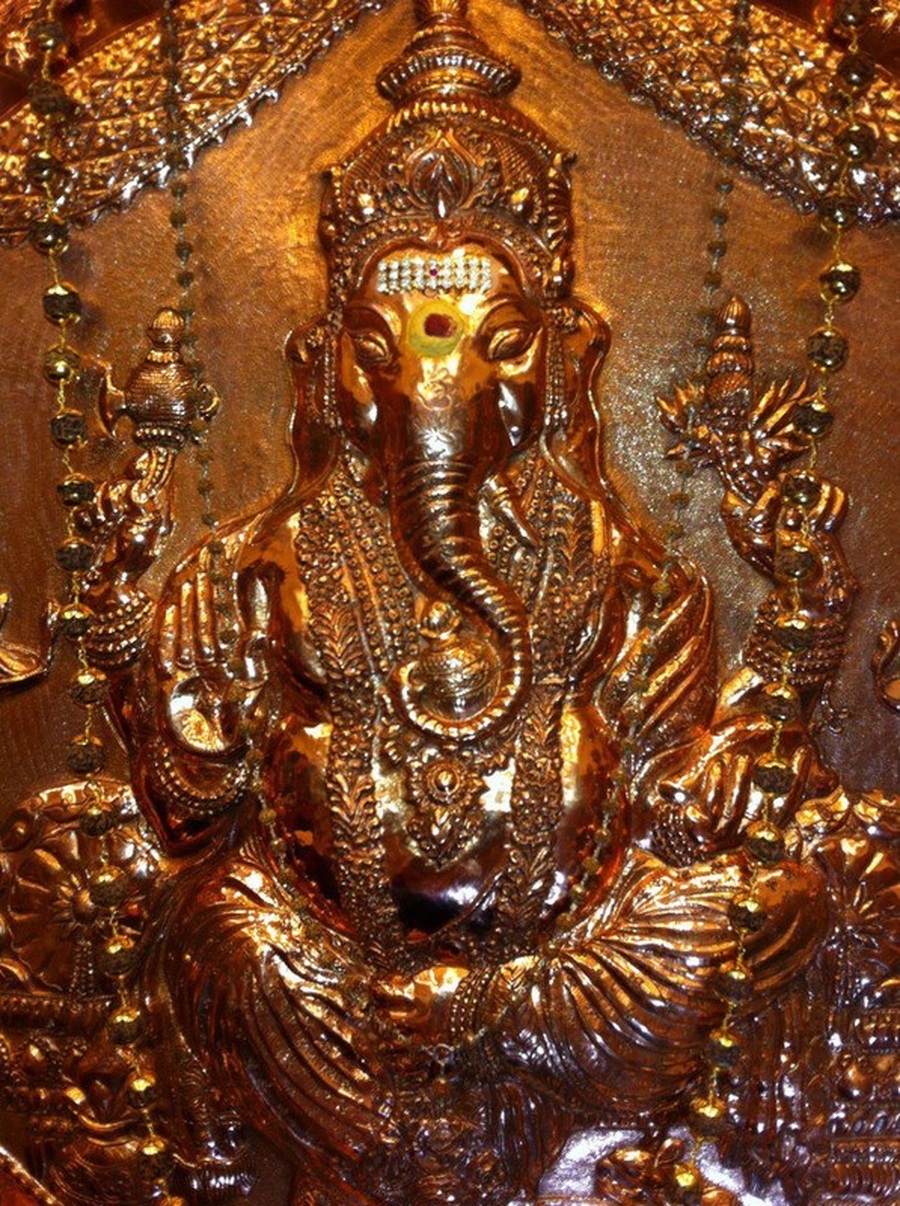
108 Names of Lord Ganesh
When chanting these names, you can start each name with Om and after each name with namaha, such as "Om Akhurath Namaha".
Name Meaning
1. Akhurath One who has Mouse as His Charioteer
2. Alampata Ever Eternal Lord
3. Amit Incomparable Lord
4. Anantachidrupamayam Infinite and Consciousness Personified
5. Avaneesh Lord of the whole World
6. Avighna Remover of Obstacles
7. Balaganapati Beloved and Lovable Child
8. Bhalchandra Moon-Crested Lord
9. Bheema Huge and Gigantic
10. Bhupati Lord of the Gods
11. Bhuvanpati God of the Gods
12. Buddhinath God of Wisdom
13. Buddhipriya Knowledge Bestower
14. Buddhividhata God of Knowledge
15. Chaturbhuj One who has Four Arms
16. Devadeva Lord of All Lords
17. Devantakanashakarin Destroyer of Evils and Asuras
18. Devavrata One who accepts all Penances
19. Devendrashika Protector of All Gods
20. Dharmik One who gives Charity
21. Dhoomravarna Smoke-Hued Lord
22. Durja Invincible Lord
23. Dvaimatura One who has two Mothers
24. Ekaakshara He of the Single Syllable
25. Ekadanta Single-Tusked Lord
26. Ekadrishta Single-Tusked Lord
27. Eshanputra Lord Shiva's Son
28. Gadadhara One who has The Mace as His Weapon
29. Gajakarna One who has Eyes like an Elephant
30. Gajanana Elephant-Faced Lord
31. Gajananeti Elephant-Faced Lord
32. Gajavakra Trunk of The Elephant
33. Gajavaktra One who has Mouth like an Elephant
34. Ganadhakshya Lord of All Ganas
35. Ganadhyakshina Leader of All The Celestial Bodies
36. Ganapati Lord of All Ganas
37. Gaurisuta The Son of Gauri (Parvati)
38. Gunina One who is The Master of All Virtues
39. Haridra One who is Golden Colored
40. Heramba Mother's Beloved Son
41. Kapila Yellowish-Brown Colored
42. Kaveesha Master of Poets
43. Kriti Lord of Music
44. Kripalu Merciful Lord
45. Krishapingaksha Yellowish-Brown Eyed
46. Kshamakaram Place of Forgiveness
47. Kshipra One who is easy to Appease
48. Lambakarna Large-Eared Lord
49. Lambodara The Huge Bellied Lord
50. Mahabala Enormously Strong Lord
51. Mahaganapati Omnipotent and Supreme Lord
52. Maheshwaram Lord of The Universe
53. Mangalamurti All Auspicious Lord
54. Manomay Winner of Hearts
55. Mrityuanjaya Conqueror of Death
56. Mundakarama Abode of Happiness
57. Muktidaya Bestower of Eternal Bliss
58. Musikvahana One who has Mouse as Charioteer
59. Nadapratithishta One who Appreciates and Loves Music
60. Namasthetu Vanquisher of All Evils and Vices and Sins
61. Nandana Lord Shiva's Son
62. Nideeshwaram Giver of Wealth and Treasures
63. Omkara One who has the Form of OM
64. Pitambara One who has Yellow-Colored Body
65. Pramoda Lord of All Abodes
66. Prathameshwara First Among All
67. Purush The Omnipotent Personality
68. Rakta One who has Red-Colored Body
69. Rudrapriya Beloved of Lord Shiva
70. Sarvadevatman Acceptor of All Celestial offerings
71. Sarvasiddhanta Bestower of Skills and Wisdom
72. Sarvatman Protector of The Universe
73. Hambhavi The Son of Parvati
74. Shashivarnam One who has a Moon like Complexion
75. Shoorpakarna Large-Eared Lord
76. Shuban All Auspicious Lord
77. Shubhagunakanan One who is The Master of All Virtues
78. Shweta One who is as Pure as the White Color
79. Siddhidhata Bestower of Success and Accomplishments
80. Siddhipriya Bestower of Wishes and Boons
81. Siddhivinayaka Bestower of Success
82. Skandapurvaja Elder Brother of Skanda (Lord Kartikeya)
83. Sumukha Auspicious Face
84. Sureshwaram Lord of All Lords
85. Swaroop Lover of Beauty
86. Tarun Ageless
87. Uddanda Nemesis of Evils and Vices
88. Umaputra The Son of Goddess Uma (Parvati)
89. Vakratunda Curved Trunk Lord
90. Varaganapati Bestower of Boons
91. Varaprada Granter of Wishes and Boons
92. Varadavinayaka Bestower of Success
93. Veeraganapati Heroic Lord
94. Vidyavaridhi God of Wisdom
95. Vighnahara Remover of Obstacles
96. Vignaharta Demolisher of Obstacles
97. Vighnaraja Lord of All Hindrances
98. Vighnarajendra Lord of All Obstacles
99. Vighnavinashanaya Destroyer of All Obstacles and Impediments
100. Vigneshwara Lord of All Obstacles
101. Vikat Huge and Gigantic
102. Vinayaka Lord of All
103. Vishwamukha Master of The Universe
104. Vishwaraja King of the World
105. Yagnakaya Acceptor of All Sacred and Sacrificial Offerings
106. Yashaskaram Bestower of Fame and Fortune
107. Yashvasin Beloved and Ever Popular Lord
108. Yogadhipa The Lord of Meditation
From Temples of India on Facebook
When chanting these names, you can start each name with Om and after each name with namaha, such as "Om Akhurath Namaha".
Name Meaning
1. Akhurath One who has Mouse as His Charioteer
2. Alampata Ever Eternal Lord
3. Amit Incomparable Lord
4. Anantachidrupamayam Infinite and Consciousness Personified
5. Avaneesh Lord of the whole World
6. Avighna Remover of Obstacles
7. Balaganapati Beloved and Lovable Child
8. Bhalchandra Moon-Crested Lord
9. Bheema Huge and Gigantic
10. Bhupati Lord of the Gods
11. Bhuvanpati God of the Gods
12. Buddhinath God of Wisdom
13. Buddhipriya Knowledge Bestower
14. Buddhividhata God of Knowledge
15. Chaturbhuj One who has Four Arms
16. Devadeva Lord of All Lords
17. Devantakanashakarin Destroyer of Evils and Asuras
18. Devavrata One who accepts all Penances
19. Devendrashika Protector of All Gods
20. Dharmik One who gives Charity
21. Dhoomravarna Smoke-Hued Lord
22. Durja Invincible Lord
23. Dvaimatura One who has two Mothers
24. Ekaakshara He of the Single Syllable
25. Ekadanta Single-Tusked Lord
26. Ekadrishta Single-Tusked Lord
27. Eshanputra Lord Shiva's Son
28. Gadadhara One who has The Mace as His Weapon
29. Gajakarna One who has Eyes like an Elephant
30. Gajanana Elephant-Faced Lord
31. Gajananeti Elephant-Faced Lord
32. Gajavakra Trunk of The Elephant
33. Gajavaktra One who has Mouth like an Elephant
34. Ganadhakshya Lord of All Ganas
35. Ganadhyakshina Leader of All The Celestial Bodies
36. Ganapati Lord of All Ganas
37. Gaurisuta The Son of Gauri (Parvati)
38. Gunina One who is The Master of All Virtues
39. Haridra One who is Golden Colored
40. Heramba Mother's Beloved Son
41. Kapila Yellowish-Brown Colored
42. Kaveesha Master of Poets
43. Kriti Lord of Music
44. Kripalu Merciful Lord
45. Krishapingaksha Yellowish-Brown Eyed
46. Kshamakaram Place of Forgiveness
47. Kshipra One who is easy to Appease
48. Lambakarna Large-Eared Lord
49. Lambodara The Huge Bellied Lord
50. Mahabala Enormously Strong Lord
51. Mahaganapati Omnipotent and Supreme Lord
52. Maheshwaram Lord of The Universe
53. Mangalamurti All Auspicious Lord
54. Manomay Winner of Hearts
55. Mrityuanjaya Conqueror of Death
56. Mundakarama Abode of Happiness
57. Muktidaya Bestower of Eternal Bliss
58. Musikvahana One who has Mouse as Charioteer
59. Nadapratithishta One who Appreciates and Loves Music
60. Namasthetu Vanquisher of All Evils and Vices and Sins
61. Nandana Lord Shiva's Son
62. Nideeshwaram Giver of Wealth and Treasures
63. Omkara One who has the Form of OM
64. Pitambara One who has Yellow-Colored Body
65. Pramoda Lord of All Abodes
66. Prathameshwara First Among All
67. Purush The Omnipotent Personality
68. Rakta One who has Red-Colored Body
69. Rudrapriya Beloved of Lord Shiva
70. Sarvadevatman Acceptor of All Celestial offerings
71. Sarvasiddhanta Bestower of Skills and Wisdom
72. Sarvatman Protector of The Universe
73. Hambhavi The Son of Parvati
74. Shashivarnam One who has a Moon like Complexion
75. Shoorpakarna Large-Eared Lord
76. Shuban All Auspicious Lord
77. Shubhagunakanan One who is The Master of All Virtues
78. Shweta One who is as Pure as the White Color
79. Siddhidhata Bestower of Success and Accomplishments
80. Siddhipriya Bestower of Wishes and Boons
81. Siddhivinayaka Bestower of Success
82. Skandapurvaja Elder Brother of Skanda (Lord Kartikeya)
83. Sumukha Auspicious Face
84. Sureshwaram Lord of All Lords
85. Swaroop Lover of Beauty
86. Tarun Ageless
87. Uddanda Nemesis of Evils and Vices
88. Umaputra The Son of Goddess Uma (Parvati)
89. Vakratunda Curved Trunk Lord
90. Varaganapati Bestower of Boons
91. Varaprada Granter of Wishes and Boons
92. Varadavinayaka Bestower of Success
93. Veeraganapati Heroic Lord
94. Vidyavaridhi God of Wisdom
95. Vighnahara Remover of Obstacles
96. Vignaharta Demolisher of Obstacles
97. Vighnaraja Lord of All Hindrances
98. Vighnarajendra Lord of All Obstacles
99. Vighnavinashanaya Destroyer of All Obstacles and Impediments
100. Vigneshwara Lord of All Obstacles
101. Vikat Huge and Gigantic
102. Vinayaka Lord of All
103. Vishwamukha Master of The Universe
104. Vishwaraja King of the World
105. Yagnakaya Acceptor of All Sacred and Sacrificial Offerings
106. Yashaskaram Bestower of Fame and Fortune
107. Yashvasin Beloved and Ever Popular Lord
108. Yogadhipa The Lord of Meditation
From Temples of India on Facebook
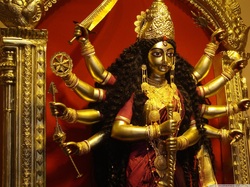
Dakhshina Kali Mantra
This mantra is depicted in the hymn to kAli named ‘dakhshinA kAli stotram', which is also called the ‘karpurAdi stotram' stemming from its first word ‘karpUr' which literally means camphor. The word ‘dakhshinA' in this context means ‘south' as She is traditionally seen as facing south. One meaning of the word ‘dakhshinA' is ‘a fee paid to a priest', inappropriately alluded to by some in this context. The base word, ‘dakhshin' also means right (as opposed to left), like referring to the right hand. The root ‘dakhsha'means ‘skilled' or ‘ expert'. This is in semblance with the Latin ‘dexter' for right- handed, with the same root giving ‘dexterous' and ‘dexterity'. (The left is ‘sinister').
One puja text explains that the departing souls who are heading south towards ‘hell' are rescued by the goddess, who is facing in the same direction. The Southern transit of the sun is also connected to the ‘night of the gods', so She may be said to be facing the ‘night'.
‘dakhsha' is also the name of the father of the Goddess in another form as ‘satI'. And in there is the story of the death of Sati because her father did not invite her consort shiva to his great fire-ceremony. The gods ended shiva's ensuing dance of destruction by slicing the body of satI into fifty-one parts. The sites at which her body fell gave rise to the 51 ‘shakti-pithas' all over the Indian sub-continent.
The dakhshinA kAli mantra is described in the first six verses of the karpurAdi stotram in terms of its individual parts and letters. The mantra consists of 22 syllables. In Sanskrit, the syllable is the ‘akhshara'. The word could mean letter (vowel or consonant) but also means ‘that which is not dissipated'. The root ‘khsara' means ‘that which is destructible'. So, Brahman, ‘the ultimate reality' is expressed in the ‘akhshara'. The Bhagabat Gita thus refers to ‘akhshara Brahman'.
(aum) krim krim krim, hum hum, hrim hrim,
dakhshinA kAlikay,
krim krim krim, hum hum, hrim hrim, swaha.
The mantra is preceded by ‘om' or ‘aum'. It consists of three ‘bija' or seeds, krim, hum and hrim, and the name ‘dakhshinA kAlike' and ‘swaha' signifying offering. The Sanskrit script shows the first seven terms of the mantra preceded by the ‘Aum' on the first line. The ‘dakh-shi-nA-kA-lI-ke' (six syllables) on the second line. The last line shows the last nine syllables ending in ‘swA-hA'. The end sound of the seeds are between ‘m' and ‘ng' and are nasalized; krIm ~ krIng, hUm ~ hUng, hrIm ~ hrIng.
This mantra is depicted in the hymn to kAli named ‘dakhshinA kAli stotram', which is also called the ‘karpurAdi stotram' stemming from its first word ‘karpUr' which literally means camphor. The word ‘dakhshinA' in this context means ‘south' as She is traditionally seen as facing south. One meaning of the word ‘dakhshinA' is ‘a fee paid to a priest', inappropriately alluded to by some in this context. The base word, ‘dakhshin' also means right (as opposed to left), like referring to the right hand. The root ‘dakhsha'means ‘skilled' or ‘ expert'. This is in semblance with the Latin ‘dexter' for right- handed, with the same root giving ‘dexterous' and ‘dexterity'. (The left is ‘sinister').
One puja text explains that the departing souls who are heading south towards ‘hell' are rescued by the goddess, who is facing in the same direction. The Southern transit of the sun is also connected to the ‘night of the gods', so She may be said to be facing the ‘night'.
‘dakhsha' is also the name of the father of the Goddess in another form as ‘satI'. And in there is the story of the death of Sati because her father did not invite her consort shiva to his great fire-ceremony. The gods ended shiva's ensuing dance of destruction by slicing the body of satI into fifty-one parts. The sites at which her body fell gave rise to the 51 ‘shakti-pithas' all over the Indian sub-continent.
The dakhshinA kAli mantra is described in the first six verses of the karpurAdi stotram in terms of its individual parts and letters. The mantra consists of 22 syllables. In Sanskrit, the syllable is the ‘akhshara'. The word could mean letter (vowel or consonant) but also means ‘that which is not dissipated'. The root ‘khsara' means ‘that which is destructible'. So, Brahman, ‘the ultimate reality' is expressed in the ‘akhshara'. The Bhagabat Gita thus refers to ‘akhshara Brahman'.
(aum) krim krim krim, hum hum, hrim hrim,
dakhshinA kAlikay,
krim krim krim, hum hum, hrim hrim, swaha.
The mantra is preceded by ‘om' or ‘aum'. It consists of three ‘bija' or seeds, krim, hum and hrim, and the name ‘dakhshinA kAlike' and ‘swaha' signifying offering. The Sanskrit script shows the first seven terms of the mantra preceded by the ‘Aum' on the first line. The ‘dakh-shi-nA-kA-lI-ke' (six syllables) on the second line. The last line shows the last nine syllables ending in ‘swA-hA'. The end sound of the seeds are between ‘m' and ‘ng' and are nasalized; krIm ~ krIng, hUm ~ hUng, hrIm ~ hrIng.
VAISHNAV JAN TO TENE KAHIYE written by the 15th century Gujarati poet Saint Narasinha Mehta, is a devotional hymn popularized by Mahatma Ghandi. It was his favourite hymn and he felt that the lyrics carried the essence of Sanathana Dharma. Singer: Srimati Lata Mangeshkar.
Vaishnav Jan to tene kahiye
Jay peerh paraaye janneyray
Par dukkhey upkar karey,
teeyey man abhiman na anney ray
A godlike man is one,
Who feels another’s pain
Who shares another’s sorrow,
And pride does disdain.
Sakal lokma Sahuney bandhey,
Ninda Na karye kainee ray
Baach kaachh, Man nischal Raakhey,
dhan-dhan jananee tainee ray
Who regards himself as the lowliest of the low,
Speaks not a word of evil against anyone
One who keeps himself steadfast in words, body and mind,
Blessed is the mother who gives birth to such a son.
Samdrishi nay trishna tyagee,
par-stree jaynay mat ray
Vivihva thaki asatya na bolay,
par-dhan nav jhaley haath ray
Who looks upon everyone as his equal and has renounced lust,
And who honors women like he honors his mother
Whose tongue knows not the taste of falsehood till his last breath,
Nor covets another’s worldly goods.
Moh maaya vyaayey nahin Jeynay,
dridth vairagya jana manma ray
Ram-nam-shoom taalee laagee,
Sakal teerth seyna tanma ray
He does not desire worldly things,
For he treads the path of renunciation
Ever on his lips is Rama’s holy name,
All places of pilgrimage are within him.
Vanloohee nay kapat rahit chhay,
Kaam, Krodh nivarya ray
Bhane Narsinhyo tainoo darshan karta
kul ekotair taarya re.
One who is not greedy and deceitful,
And has conquered lust and anger
Through such a man Saint Narsaiyon has a godly vision,
Generations to come, of such a man, will attain salvation.
Hari Om
Vaishnav Jan to tene kahiye
Jay peerh paraaye janneyray
Par dukkhey upkar karey,
teeyey man abhiman na anney ray
A godlike man is one,
Who feels another’s pain
Who shares another’s sorrow,
And pride does disdain.
Sakal lokma Sahuney bandhey,
Ninda Na karye kainee ray
Baach kaachh, Man nischal Raakhey,
dhan-dhan jananee tainee ray
Who regards himself as the lowliest of the low,
Speaks not a word of evil against anyone
One who keeps himself steadfast in words, body and mind,
Blessed is the mother who gives birth to such a son.
Samdrishi nay trishna tyagee,
par-stree jaynay mat ray
Vivihva thaki asatya na bolay,
par-dhan nav jhaley haath ray
Who looks upon everyone as his equal and has renounced lust,
And who honors women like he honors his mother
Whose tongue knows not the taste of falsehood till his last breath,
Nor covets another’s worldly goods.
Moh maaya vyaayey nahin Jeynay,
dridth vairagya jana manma ray
Ram-nam-shoom taalee laagee,
Sakal teerth seyna tanma ray
He does not desire worldly things,
For he treads the path of renunciation
Ever on his lips is Rama’s holy name,
All places of pilgrimage are within him.
Vanloohee nay kapat rahit chhay,
Kaam, Krodh nivarya ray
Bhane Narsinhyo tainoo darshan karta
kul ekotair taarya re.
One who is not greedy and deceitful,
And has conquered lust and anger
Through such a man Saint Narsaiyon has a godly vision,
Generations to come, of such a man, will attain salvation.
Hari Om
108 Names of Devi, the Divine Mother
(This is a selection of names from the Shri Lalita Sahasranam, the Thousand Names of Devi with the meanings.
Chanting and meditating on these names is said to ward off all evils.)
OM SHRI LALITAMBIKAYAI NAMAHA
Salutations to the great goddess Shri Lalitambika
OM SHRI MATRE NAMAHA
Salutations to the sacred Mother
OM SHRI MAHA RAGNYAI NAMAHA
Salutations to the great Empress
OM BHAVANYAI NAMAHA
Salutations to the consort of Shiva
OM BHAVANA GAMYAYAI NAMAHA
Salutations to the Mother who is reached through constant reflection on Truth
OM BHADRA PRIYAYAI NAMAHA
Salutations to the Mother who loves to be benevolent
OM BHADRA MURTYAI NAMAHA
Salutations to the Mother who is the embodiment of benevolence
OM BHAKTI PRIYAYAI NAMAHA
Salutations to the Mother who is pleased by Her devotees' loving worship
OM BHAKTI GAMYAYAI NAMAHA
Salutations to the Mother who is reached by yearning service and meditation
OM BHAKTI VASYAYAI NAMAHA
Salutations to the Mother who is made one's own by loving acts of devotion
OM BHAYA PAHAYAI NAMAHA
Salutations to the Mother who dispels all fear
OM SHAMBHAVYAI NAMAHA
Salutations to the Mother who worships Shambhu
OM SHARADARADHYAYAI NAMAHA
Salutations to the Mother who is worshiped as the Goddess of learning in the autumn
OM SHARVANYAI NAMAHA
Salutations to the Mother who is the consort of Sarva
OM SHARMADAYINYAI NAMAHA
Salutations to the Mother who is always the giver of happiness
OM SHANKARYAI NAMAHA
Salutations to the Mother who is inseparable from Parama Shiva
OM SHRIKARYAI NAMAHA
Salutations to the Mother who is Vishnu's consort, Lakshmi
OM SHATODARYAI NAMAHA
Salutations to the Mother who has a slender waist
OM SHANTIMATYAI NAMAHA
Salutations to the Mother who is ever at peace with Her devotees
OM NIRADHARAYAI NAMAHA
Salutations to the Mother who has no other support
OM NIRANJANAYAI NAMAHA
Salutations to the Mother who is unstained
OM NIRLEPAYAI NAMAHA
Salutations to the Mother who is untouched
OM NIRMALAYAI NAMAHA
Salutations to the Mother who is ever pure
OM NITYAYAI NAMAHA
Salutations to the Mother who is eternal
OM NIRAKARAYAI NAMAHA
Salutations to the Mother who is without form
OM NIRAKULAYAI NAMAHA
Salutations to the Mother who is never perturbed
OM NIRGUNAYAI NAMAHA
Salutations to the Mother who is attributeless
OM NISHKALAYAI NAMAHA
Salutations to the Mother who is indivisible
OM SHANTAYAI NAMAHA
Salutations to the Mother who is perfectly serene
OM NISHKAMAYAI NAMAHA
Salutations to the Mother who is free from all desires
OM NITYAMUKTAYAI NAMAHA
Salutations to the Mother who is eternally free from illusion
OM NIRVIKARAYAI NAMAHA
Salutations to the Mother who is the unchanging basis for all change
OM NISHPRAPANCHAYAI NAMAHA
Salutations to the Mother who is beyond all phenomena of the world
OM NIRASHRAYAYAI NAMAHA
Salutations to the Mother who depends on none
OM NITYA SHUDDHAYAI NAMAHA
Salutations to the Mother who is eternally taintless
OM NITYA BUDDHAYAI NAMAHA
Salutations to the Mother who is perpetual abode of knowledge
OM NIRAVADYAYAI NAMAHA
Salutations to the Mother who is entirely free from flaw
OM NIRANTARAYAI NAMAHA
Salutations to the Mother who is without end
OM NISHKARANAYAI NAMAHA
Salutations to the Mother who is without beginning
OM NISHKALANKAYAI NAMAHA
Salutations to the Mother who has no lapse whatsoever
OM NIRUPADHAYE NAMAHA
Salutations to the Mother who is limitless
OM NIRISHVARAYAI NAMAHA
Salutations to the Motherwho is supreme
OM NIRAGAYAI NAMAHA
Salutations to the Mother who has no passions
OM RAGA MATHANYAI NAMAHA
Salutations to the Mother who destroys all attachments
OM NIRMADAYAI NAMAHA
Salutations to the Mother who has no pride
OM MADANASHINYAI NAMAHA
Salutations to the Mother who wipes out arrogance
OM NISHCHINTAYAI NAMAHA
Salutations to the Mother who is free from all anxiety
OM NIRAHANKARAYAI NAMAHA
Salutations to the Mother who is completely free from ego
OM NIRMOHAYAI NAMAHA
Salutations to the Mother who is completely free of delusion
OM MOHA NASHINYAI NAMAHA
Salutations to the Mother who cures the delusions of Her devotees
OM NIRMAMAYAI NAMAHA
Salutations to the Mother who has no ego or "my"-ness
OM MAMATA HANTRYAI NAMAHA
Salutations to the Mother who destroys conceit and selfishness in Her devotees
OM NISHPAPAYAI NAMAHA
Salutations to the Mother who is the negation of sin
OM PAPA NASHINYAI NAMAHA
Salutations to the Mother who completely destroys sin by the mere repetition of Her name
OM NISHKRODHAYAI NAMAHA
Salutations to the Mother who has no enemy or anger
OM KRODHA SHAMANYAI NAMAHA
Salutations to the Mother who extinguishes anger rising in the minds of Her devotees
OM NIRLOBHAYAI NAMAHA
Salutations to the Mother who is completely free from greed
OM LOBHA NASHINYAI NAMAHA
Salutations to the Mother who removes greed from the minds of Her devotees
OM NIHSAMSHAYAYAI NAMAHA
Salutations to the Mother who is free from doubt
OM NIRBHAVAYAI NAMAHA
Salutations to the Mother who has no origin
OM BHAVA NASHINYAI NAMAHA
Salutations to the Mother who puts an end to the rounds of birth and death
OM NIRVIKALPAYAI NAMAHA
Salutations to the Mother who is the eternal pure intelligence
OM NIRABADHAYAI NAMAHA
Salutations to the Mother who remains ever untroubled
OM NIRBHEDAYAI NAMAHA
Salutations to the Mother in whom all are one
OM BHEDA NASHINYAI NAMAHA
Salutations to the Mother who destroys the distinctions made by the mind
OM NIRNASHAYAI NAMAHA
Salutations to the Mother who is immortal
OM MRITYU MATHANYAI NAMAHA
Salutations to the Mother who uproots the cause of death in Her devotees
OM NISHKRIYAYAI NAMAHA
Salutations to the Mother who is beyond all action
OM NISHPARIGRAHAYAI NAMAHA
Salutations to the Mother who takes nothing
OM NISTULAYAI NAMAHA
Salutations to the Mother who is unequaled
OM NILA CHIKURAYAI NAMAHA
Salutations to the Mother who has locks of shining black hair
OM NIRAPAYAYAI NAMAHA
Salutations to the Mother who never departs
OM NIRATYAYAYAI NAMAHA
Salutations to the Mother who is beyond all danger
OM DURLABHAYAI NAMAHA
Salutations to the Mother who is attained through long-sustained and necessary efforts
OM DURGAMAYAI NAMAHA
Salutations to the Mother who is not reached without painstaking continued exertion
OM DURGAYAI NAMAHA
Salutations to the Mother who is Goddess Durga
OM DUKHA HANTRYAI NAMAHA
Salutations to the Mother who destroys sorrow
OM SUKHA PRADAYAI NAMAHA
Salutations to the Mother who confers the bliss of liberation
OM SARVAGNAYAI NAMAHA
Salutations to the Mother who is omniscient
OM SANDRA KARUNAYAI NAMAHA
Salutations to the Mother who is intensely compassionate
OM SARVA SHAKTI MAYYAI NAMAHA
Salutations to the Mother who is the source of all power
OM SARVA MANGALAYAI NAMAHA
Salutations to the Mother who possesses all that is auspicious
OM SAD GATI PRADAYAI NAMAHA
Salutations to the Mother who takes the seeker to the supreme goal
OM SARVESHVARYAI NAMAHA
Salutations to the Mother who is the queen of the universe
OM SARVAMAYYAI NAMAHA
Salutations to the Mother who is immanent in all
OM MAHESHVARYAI NAMAHA
Salutations to the Mother who transcends nature and is the source of all
OM MAHA KALYAI NAMAHA
Salutations to the Mother who is the great goddess Kali who destroys even death
OM MAHA DEVYAI NAMAHA
Salutations to the Mother who is the great goddess
OM MAHA LAKSHMYAI NAMAHA
Salutations to the Mother who is the great goddess Lakshmi who is the source of life's bounty
OM MAHA RUPAYAI NAMAHA
Salutations to the Mother who is the supreme form
OM MAHA PUJYAYAI NAMAHA
Salutations to the Mother who is worthy of worship
OM MAHA MAYAYAI NAMAHA
Salutations to the Mother who is the great creator of the illusory energy
OM MAHA SATTVAYAI NAMAHA
Salutations to the Mother who is the supreme existence
OM MAHA SHAKTYAI NAMAHA
Salutations to the Mother who is the supreme energy
OM MAHA RATYAI NAMAHA
Salutations to the Mother who is boundless bliss
OM MAHA BHOGAYAI NAMAHA
Salutations to the Mother who is the supreme enjoyment and luxury
OM MAHAISHVARYAYAI NAMAHA
Salutations to the Mother who has supreme dominion
OM MAHA VIRYAYAI NAMAHA
Salutations to the Mother of supreme prowess and strength
OM MAHA BALAYAI NAMAHA
Salutations to the Mother who is of great strength
OM MAHA BUDDHYAI NAMAHA
Salutations to the Mother who is supreme intelligence
OM MAHA SIDDHYAI NAMAHA
Salutations to the Mother whose attainments are supreme
OM MAHA TANTRAYAI NAMAHA
Salutations to the Mother who is the subject of the great Tantras
OM MAHA MANTRAYAI NAMAHA
Salutations to the Mother who is the great mantra
OM MAHA YANTRAYAI NAMAHA
Salutations to the Mother who is worshiped in the symbols of yantras
OM MAHASANAYAI NAMAHA
Salutations to the Mother whose seat is worthy of great worship
OM PARAM JYOTYAI NAMAHA
Salutations to the Mother who is the supreme radiance
OM PARAM DHAMNE NAMAHA
Salutations to the Mother who is the supreme abode
OM PARAMANAVE NAMAHA
Salutations to the Mother who is the most subtle
OM PARAT PARAYAI NAMAHA
Salutations to the Mother who is the greatest
OM PARA SHAKTYAI NAMAHA
Salutations to the Mother who is the supreme energy
OM SHRI SHIVAYAI NAMAHA
Salutations to the Mother who is with the worshipful Shiva
OM SHIVA SHAKTAIKYA RUPINYAI NAMAHA
Salutations to the Mother who is the form of energy or potency united with Lord Shiva
OM VISHNU SHAKTYAIKYA RUPINYAI NAMAHA
Salutations to the Mother who is a form of the potency (shakti) united with Lord Vishnu
OM BRAHMA SHAKTYAIKYA RUPINYAI NAMAHA
Salutations to the Mother who is a form of the potency (shakti) united with Brahma
OM SHRI LALITAMBIKAYAI NAMAHA
Salutations to the Mother who is the goddess Shri Lalitambika
OM SHRI MATA AMRITANANDAMAYE NAMAHA
Salutations to the Mother who is called Amritanandamayi
OM SHRI MAHA TRIPURA SUNDARYAI NAMAHA
Salutations to the Mother whose name is also the divine Mother Tripurasundari --
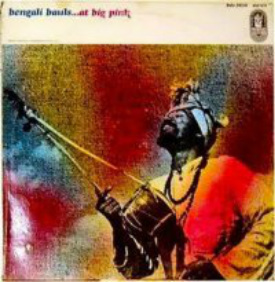
A lesson in Kirtan everything comes from somewhere and this too is with Raghupati Raghav history there is a person who composed the tune and wrote the Bhajan... I have learned many of the tunes and lyrics that western Kritan singers are singing have originated in India or from some lineage.
That there were people who walked before, I think it would be great to preserve the original and create an archive of where these lyrics and tunes came from. I have listened to so many singing chanting kirtan ect... without even the slightest knowledge of where this all is coming from.
A Kirtan college or teaching on Mantra, kirtan Indian chanting should at least provide knowledge of this... after all everything comes from somewhere as Bhakti Yoga is Yoga too and it has a huge history.
That there were people who walked before, I think it would be great to preserve the original and create an archive of where these lyrics and tunes came from. I have listened to so many singing chanting kirtan ect... without even the slightest knowledge of where this all is coming from.
A Kirtan college or teaching on Mantra, kirtan Indian chanting should at least provide knowledge of this... after all everything comes from somewhere as Bhakti Yoga is Yoga too and it has a huge history.
